“Alright. But apart from the cheap away travel, the discounts at the football club and with local businesses, the many kids in the community getting free football coaching, the golf day, the money raised for good causes, the 50/50 draw, the support for local schools, the liaison with the football club, the supporters football team…..and all run by volunteers….what has the CTSA ever done for us?!”
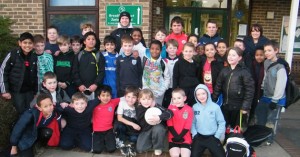 Sorry for the Python moment there. I’ve been back in the chair for a week and it’s been a little busy, but one of the things it has been busy with are people who think we don’t get enough visibility for the work we do, and people who don’t understand that work at all, and have felt the need to tell me- and others- about it. I’ve probably missed a number of things from the list above, indeed I’m sure I have, but you undoubtedly get the point. The question for me, however, is about whether we are meeting our stated aims. To be blunt, are we doing what we promised when we set up the CTSA?
Sorry for the Python moment there. I’ve been back in the chair for a week and it’s been a little busy, but one of the things it has been busy with are people who think we don’t get enough visibility for the work we do, and people who don’t understand that work at all, and have felt the need to tell me- and others- about it. I’ve probably missed a number of things from the list above, indeed I’m sure I have, but you undoubtedly get the point. The question for me, however, is about whether we are meeting our stated aims. To be blunt, are we doing what we promised when we set up the CTSA?
To begin with, let’s look at those aims. Taken directly from our website at www.ctfcsa.co.uk they are as follows:
1. To unite our club and our community for the mutual success of all concerned.
2. To act as a conduit for effective communication between club and community, and to be ambassadors for both.
3. To assist our club and community in any way approved by our membership, including financially, in kind, and in partnerships with community organisations and business to promote our mutual interests.
4. To assist the club in promoting support for CTFC and to encourage new support, especially of young people, families and those from under-represented areas of our diverse local population. This to include the management of away travel provision.
5. To promote the benefits of sport within our community.
6. To encourage the club to play football at the highest level possible, but always operating within a framework of responsible and prudent financial management and with a duty to highlight concern in areas of probity & governance.
7. To ensure that the reputation and good name of our club is never compromised or placed in jeopardy –and to guarantee a strong, independent voice for all of our supporters whether during times of success or adversity.
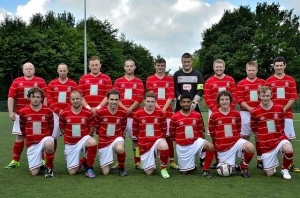 Now number 1, for me, is a little bit of a cover all statement. I think we could perhaps say we’ve united those who wished to be united, but obviously for reasons not worth going into here we haven’t managed to take everyone with us. How about “we’ve pleased most of the people who wanted to be pleased most of the time?” The problem is, being realistic, that much of the community isn’t particularly interested in the club. We’ve got to try and make it be interested, but how do we do that- or perhaps, more to the point, how do we do that in a sustainable way? More on that in a moment.
Now number 1, for me, is a little bit of a cover all statement. I think we could perhaps say we’ve united those who wished to be united, but obviously for reasons not worth going into here we haven’t managed to take everyone with us. How about “we’ve pleased most of the people who wanted to be pleased most of the time?” The problem is, being realistic, that much of the community isn’t particularly interested in the club. We’ve got to try and make it be interested, but how do we do that- or perhaps, more to the point, how do we do that in a sustainable way? More on that in a moment.
I suppose it’s fair to say we’ve also been successful at aims 3, 4 and 5- see the first paragraph- and we’ve plans which we expect to announce shortly which will push our community work to new levels. Which leaves us 2, 6 and 7. Unfortunately, these are probably the most difficult for any supporters organisation to achieve.
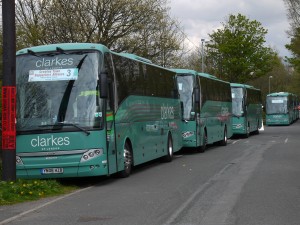 To be able to act as a conduit for communication, to be able to ask difficult questions and to be to able to guarantee a strong, independent voice for our supporters depends on a number of factors. These may include an ability to analyse, to think clearly, to have the courage of our convictions- but chiefly they are about relationships. We as a board have to act with one voice on your behalf, which means we have to be able to work together, to compromise, to think about the common good rather than any personal ambitions we may have. We also have to remember that we’re all volunteers- we want to work hard but it needs to be fun! Sometimes over the past couple of years we perhaps haven’t managed this as well as we would like. Personally, I think we now have a board with entirely the right constituent parts to ensure a successful outcome, but only time will prove me right!
To be able to act as a conduit for communication, to be able to ask difficult questions and to be to able to guarantee a strong, independent voice for our supporters depends on a number of factors. These may include an ability to analyse, to think clearly, to have the courage of our convictions- but chiefly they are about relationships. We as a board have to act with one voice on your behalf, which means we have to be able to work together, to compromise, to think about the common good rather than any personal ambitions we may have. We also have to remember that we’re all volunteers- we want to work hard but it needs to be fun! Sometimes over the past couple of years we perhaps haven’t managed this as well as we would like. Personally, I think we now have a board with entirely the right constituent parts to ensure a successful outcome, but only time will prove me right!
The other critical relationship is the one we have with the football club; with the staff and with the owners, but chiefly with the Chief Executive, as he is our principal point of contact. If we are to be able to raise constructively with him the matters we commit to in our aims we have to ensure that the relationship we have is based on mutual trust and understanding. We don’t always have to agree, but to be effective when working together we do have to understand each other and get along. In short, we need each other, and we need to be a partnership. We’re about to have to build that relationship all over again; but we have a good starting point, we both want the same thing- a successful, sustainable football club. So we look forward to doing that, starting tomorrow!
The point that needs to be made, however, is that where we don’t agree, the CTSA have to be big enough to stand up and say so, and the club need to be able to understand that the disagreement is not personal. I’m not sure we’ve got that right consistently in the past; indeed, I’m sure we haven’t. I manage people for a living, and I also manage people who manage people, and as they’ll all tell you, one of my favourite sayings is “manage the facts, not the personality”. I think that’s something we’ll all have to be better at, me included.
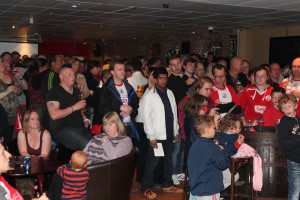 The one constant at a football club is its supporters. We’ve been lucky in that for the past few years we’ve had owners we should have great faith in, but they’ve stated a wish to move on and as supporters of many clubs bigger than ours have found out (and as we’ll remember from our own past) that doesn’t always end well. From our own perspective, we need not to expect any owners to be perfect and mistake free- they’re human and will err like the rest of us. We need not to expect them to agree with us all the time, nor to always be free with detail; they are running a business, after all, and some things are commercially sensitive. But we do need them to expect that we will sometimes ask awkward questions and expect honest answers, and we do need to keep a weather eye on the future. We also need them to think about the way they communicate with the supporters, because football isn’t like any other business and communication needs to be pitched at the right level. As a shopper, you may regularly visit Tesco or Asda but you’re unlikely to be emotionally attached to the brand. As a football supporter, however, the “brand” is part of your very identity and your fellow “shoppers” are people you have an emotional connection with. A football club should be run like a business, but it needs not to forget that its relationship with its customers is built on an emotional rather than rational connection and manage its communication accordingly. Fail to do that and you end up with six to ten pages of “disgruntled of Crawley” on the fans forum and a collection of local newspapers searching for stories in areas where there really shouldn’t be any.
The one constant at a football club is its supporters. We’ve been lucky in that for the past few years we’ve had owners we should have great faith in, but they’ve stated a wish to move on and as supporters of many clubs bigger than ours have found out (and as we’ll remember from our own past) that doesn’t always end well. From our own perspective, we need not to expect any owners to be perfect and mistake free- they’re human and will err like the rest of us. We need not to expect them to agree with us all the time, nor to always be free with detail; they are running a business, after all, and some things are commercially sensitive. But we do need them to expect that we will sometimes ask awkward questions and expect honest answers, and we do need to keep a weather eye on the future. We also need them to think about the way they communicate with the supporters, because football isn’t like any other business and communication needs to be pitched at the right level. As a shopper, you may regularly visit Tesco or Asda but you’re unlikely to be emotionally attached to the brand. As a football supporter, however, the “brand” is part of your very identity and your fellow “shoppers” are people you have an emotional connection with. A football club should be run like a business, but it needs not to forget that its relationship with its customers is built on an emotional rather than rational connection and manage its communication accordingly. Fail to do that and you end up with six to ten pages of “disgruntled of Crawley” on the fans forum and a collection of local newspapers searching for stories in areas where there really shouldn’t be any.
Now, back to aim number one. To quote, “To unite our club and our community for the mutual success of all concerned.” Many football clubs are synonymous with the community they exist in. But when you mention to people that you live in Crawley do they immediately respond, “Crawley Town,” or do they say, “oh yeah, near Gatwick?” Well we may never be able to replace Gatwick in people’s consciousness but it would be nice if we were in there somewhere, perhaps as a close second! We aren’t anywhere near that point at the moment. How do we get there?
We recently had a marketing manager. Now we don’t. Is that a good thing? That depends. Fan engagement and building “brand” loyalty takes time and costs money. But how much money can we afford to spend on it? Put another way, would you like a Marketing Manager or a new centre forward? Both would be nice, but what if we can’t afford both? Or either? We have perhaps 3000 loyal home fans- even with the efforts of the commercial department bringing in sponsorship, will that give us an enormous marketing budget? I know what I think the answers are. Marketing is great, but the dividends it reaps will be long term. To pay for a long term plan we need a long term budget. Very few football clubs at our level have one of those.
The community must be engaged. What engages them? Two things, in the main- a successful team and a club that gives them a good “customer experience.” Not necessarily the most expensive, lavish customer experience, just a “good” one. A club that listens, communicates, spends time remembering the importance of the relationship between it and its community. This, bizarrely, is what a Supporters Trust- like ours- should be helping with. Hopefully, it’s exactly what we will be helping with in the future.
I’ve said it before, but to some extent we will get the football club we can afford. If we want to afford a better, bigger, more successful football club, we need a bigger support. If we can’t afford to employ people in their droves to go out and drum up that support, then we, the supporters, need to take more responsibility. In effect, we need to be 3000 marketing managers.
So shout your allegiances from the rooftops. Tell everyone you know how wonderful it is to follow our football club. Bring your friends. Don’t expect perfection from those in charge, just expect them to be reasonable, sensible and honest. Expect your Supporters Trust to ask the difficult questions.
And, if you like, get involved in the CTSA and make a tangible difference. As whatever the future holds, the best way to face it is together; if you will, as part of an Alliance.
Take care, Ian
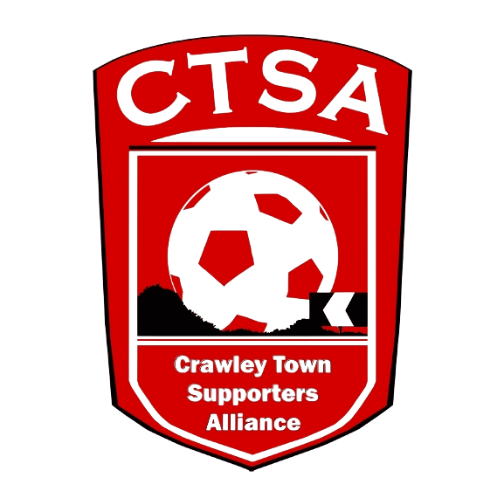
0 Comments